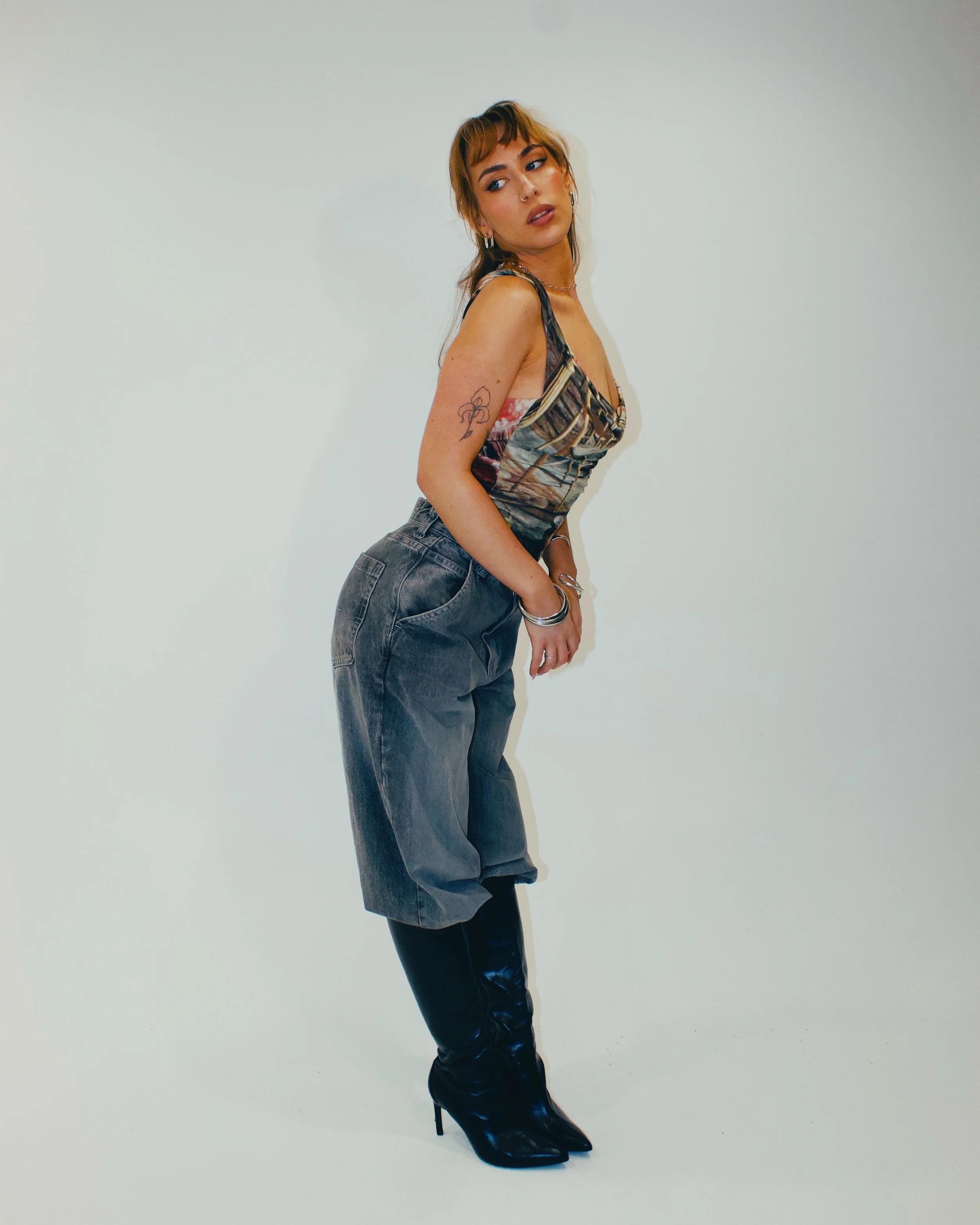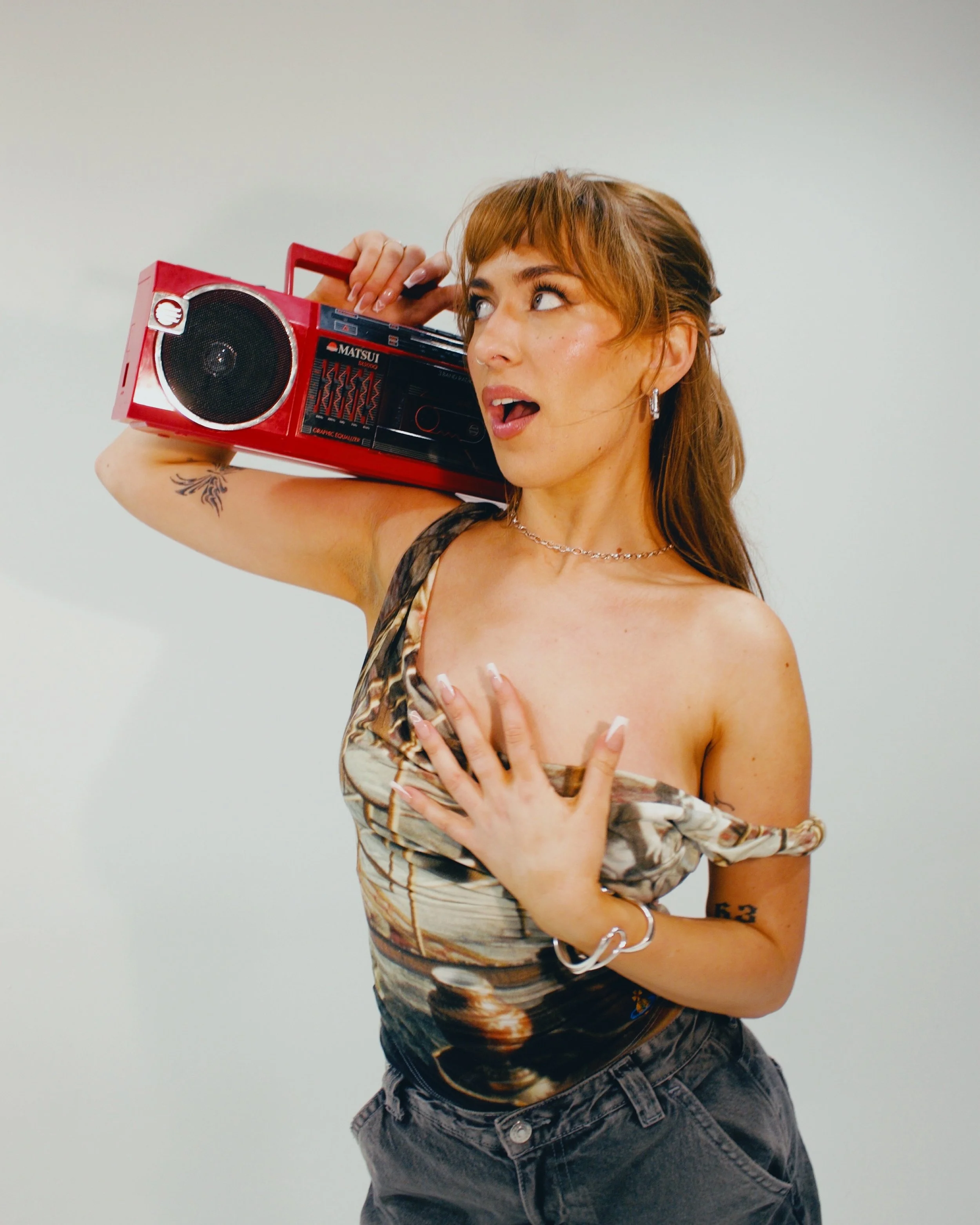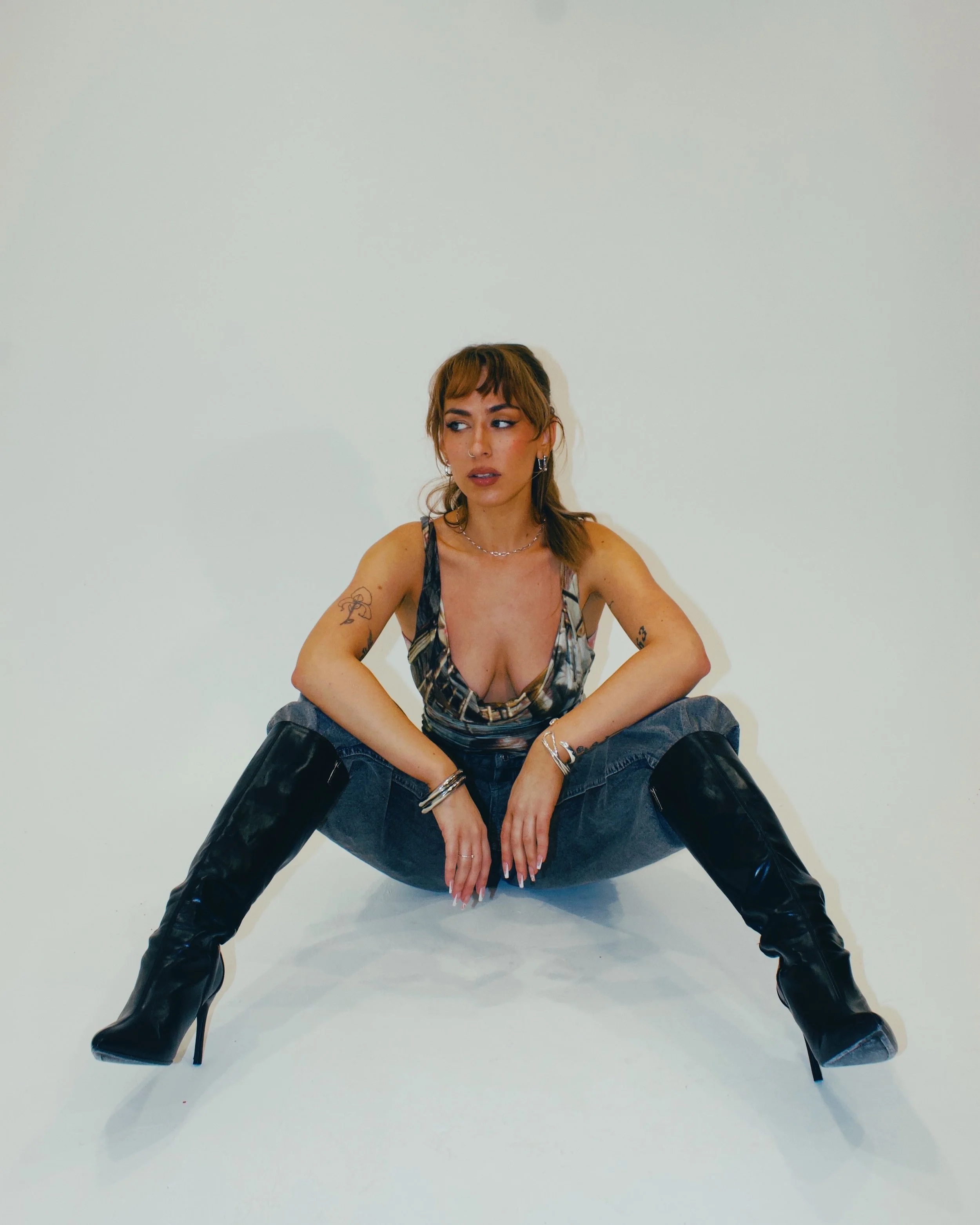
In Conversation x Elsa
Meet South London’s soulful storyteller.
Recognised for her authenticity and charm, Elsa invites you into a world where vulnerability meets resilience. Her music is rooted at the crossroads of soul, hip-hop, and jazz, carried by an unmistakable tone and raw, poetic lyricism. Elsa blends warmth, grit, and unfiltered emotion with a voice and vision that suit any sonic landscape.
In just two years, she’s become the one to watch, recently crowned one of Spotify’s Fresh Finds and BBC's Featured Artist of the Week.
Now deep into her next chapter, Elsa is building something honest, one song at a time.
Your music feels like it sits at the intersection of intimacy and experimentation. When you sit down to create, do you start with emotion, sound texture, or something else entirely?
This changes every single time I make something new. Sometimes a sound or chord progression takes me somewhere. The smallest things can be an inspiration when making art but a lot of the time, my mood, my emotion, pushes all creativity.
Your use of field recordings and lo-fi elements creates this beautiful, almost ghostlike atmosphere. What draws you to these imperfect, textured sounds over polished production?
There’s something so human about it. I love the grit and I’m not a polished girl. The imperfections are real. It’s about capturing a moment, not about making it perfect.
From your Instagram teasers, it feels like visual storytelling plays a big role in your process. Do your songs usually inspire your visuals, or do you sometimes craft music around an image in your head?
I’m a very visual thinker so it all feeds into itself. I usually picture scenes, colours, storylines the minute I've written the song. You can really emphasise what you’re trying to say, or bring a whole new meaning to it. I guess it’s just another means of expression.
Loneliness, memory, and longing seem to ripple through a lot of your work. Are these themes you consciously lean into, or do they emerge naturally from your writing?
It almost sounds cliché, but music is my therapy. What comes up in my writing comes from within - the things I need to work through. I’ve made a lot of sombre and emotive music because that’s how I process those times. It’s only when I’m writing for others that I consciously lean into emotions or themes. When it’s for me, I just let it flow.
You’ve mentioned in interviews that you often record vocals alone late at night. How does that solitude shape the intimacy listeners feel in your songs?
Late at night, everything feels quieter, even internally. I can hear myself better. It’s less performative and more expressive. You can really dig deep, experiment freely and create something a little more genuine. I find myself writing at 2am alone in bed a lot of the time.
Are there specific artists, filmmakers, or even non-musical experiences that shaped your sonic palette?
I grew up listening to a lot of jazz and hip-hop. It’s hard to pinpoint just one artist or creative that shaped my palette but growing up in London definitely influenced me sonically; being surrounded by so many different cultures, tastes, and communities and just constantly absorbing it all.
Has your relationship with London, both the city’s physical spaces and emotional energy, seeped into your sound in ways you notice?
London definitely influences my artistry every day. It’s the calm and the chaos. Being born and raised here, I feel like I can appreciate the softness in the city; but there’s also so much grit. I also lived in Brighton for a few years, which probably shaped me a bit too. It was lo-fi central.
There’s something really unique about the way you play with vocal softness, almost like you’re whispering secrets to the listener. Was that an intentional vocal identity choice, or something that evolved over time?
I think at times I felt like singing big was the only way to be heard. I am very passionate and that often comes out in my songs when I start belting my heart out but there is so much power in subtlety. Especially when speaking about certain topics, sometimes softness says more.
As an artist building visibility now, how do you navigate the line between staying mysterious and giving listeners a window into your world?
I am not sure I navigate it well. I’m quite an open person, and I don't think I’ll ever be seen as the mysterious type. But I’m okay with that. I’m happy to bare all, as long as I can protect my peace.
Many fans describe your music as something they listen to when they’re at their most vulnerable. Is vulnerability something you feel protective of in your work, or do you see it as a shared space with your listeners?
Vulnerability is so important. Vulnerability is a bridge. I hope my music holds space for someone to feel what they need to. It’s a privilege.
Do you ever write something and then hesitate to release it because it feels too raw, or is that kind of openness part of the point for you?
The openness is definitely part of the point for me. There are things I’ve written that felt too exposed at the time, but that feeling doesn’t usually last long. What’s the use otherwise?
After the release of Pretend, it feels like you’re experimenting with new production tools and maybe heavier beats. Is there a sonic direction or mood you’re moving towards for your next project?
Somewhat, yeah. I love blending the organic, live feel of soul and jazz with more synthy, electronic, gritty textures. When it’s done right, it’s candy for the ears. I felt like I was boxing myself in for a while trying to keep those worlds separate. I realise they can coexist beautifully. The next project still leans into live instrumentation and soulful energy, but I’m definitely allowing myself to be more experimental.
What’s something you’re currently obsessed with creatively (could be a sound, a piece of gear, or even a feeling) that’s shaping your next body of work?
I think a lot of people feel opposed to distorted vocals, that voicemail type processing but I’m obsessed with it. Anything that feels nostalgic.
If you could collaborate with any visual artist, filmmaker, or producer right now, who would it be and why?
I always find these kinds of questions hard. I don’t have a list of big names. For me, the best collaborations come from shared emotion and intention. It’s about the energy in the room. I think it’d be sick to perform with someone like Yussef Dayes or just watch Jacob Collier at work. I’d love to make some real cool, ignorant, boss music with someone like Lexa Gates. Too many creatives to name. At the end of the day, collaboration is key.
Photography: Matilda Trevitt, Stylist: Amalia Smart, MUA: Chess Thornton



